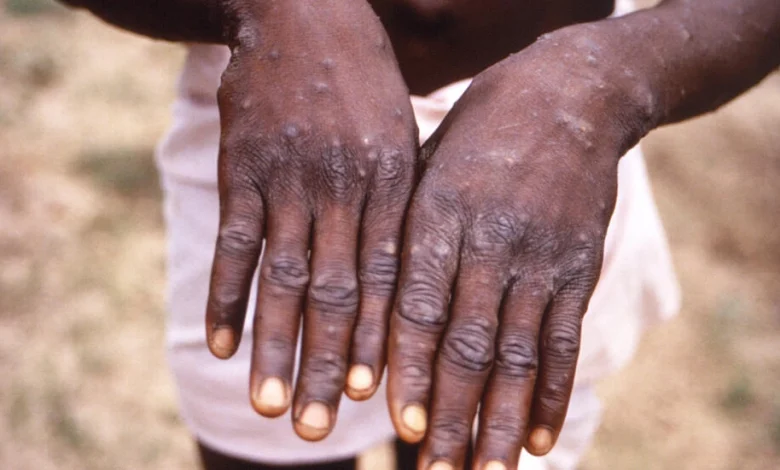Fears new ‘most dangerous’ mpox strain could cross borders
A new deadlier strain of mpox that transmits more easily between people is killing children and causing miscarriages in the Democratic Republic of Congo and may have already spread to neighbouring countries, researchers have warned.

According to John Claude Udahemuka, a researcher at the University of Rwanda who is tracking the outbreak, all nations should be getting ready for “this new strain before it spreads to other places, before it is too late,” AFP said.
In 2022, an international outbreak of a novel strain of Mpox, formerly known as monkeypox, occurred in over 110 nations, primarily afflicting men who identify as gay or bisexual. The strain of Clade II was that one.
However, since it was discovered in the Democratic Republic of the Congo in 1970, outbreaks of the ten times more deadly clade I strain have occurred often in Africa.
Although the majority of the global outbreak was spread through sexual contact, people in Africa typically contracted clade I from eating bushmeat or other infected animals.
However, Udahemuka stated at an online press conference that “it was obvious something was different” about an mpox outbreak discovered among sex workers in the isolated mining town of Kamituga, the Democratic Republic of the Congo, in September of last year.
In contrast to earlier epidemics in the nation of central Africa, heterosexuals were using sex to spread the virus.
It was discovered through testing to be a mutant strain known as clade Ib.
According to Udahemuka, it is “without a doubt the most dangerous strain to date.”
Since then, the South Kivu province has recorded over 1,000 cases of clade Ib, according to Leandre Murhula Masirika, who has spearheaded local investigation into the outbreak.
He cautioned that there are over 20 new instances in Kamituga alone each week, and the number is growing.
“Very concerning”
Researchers found that 10% of children and 5% of adults who contract the strain pass away.
Unlike clade II, which often produced lesions more restricted to the vaginal area, it causes victims to experience “horrendous whole body rashes,” according to Oxford University global health specialist Trudie Lang.
In a significant departure from other outbreaks, the clade Ib strain has also been spreading through non-sexual human contact, such as between families or kids playing together at school, the researchers added.
According to Lang, there has been a “high amount” of transmission between moms or other caregivers and the kids.
In addition to causing a lot of miscarriages, the strain is being studied for its long-term effects on fertility.
These notable distinctions from earlier mpox strains are “extremely concerning,” according to Lang.
Furthermore, the severe instances who present to the hospital are probably just “the tip of the iceberg,” she continued, adding that many individuals probably have less severe symptoms.
Lang issued a warning, comparing this level of research to the early days of Covid-19, pointing out that there are still a lot of “important unknowns” regarding the novel strain.
According to the World Health Organization, almost 60% of the 384 individuals who lost their lives to all strains of mpox in the Democratic Republic of the Congo this year were youngsters.
Concerns about a larger outbreak
Clade Ib has so far spread to the Congolese cities of Bukavu, Uvira, and Kamanyola; this week, the researchers reported, the virus was officially declared in Goma, the capital of North Kivu province.
The DR Congo shares borders with Rwanda, Burundi, and Uganda through these cities.
Although the new strain hasn’t been formally reported outside of the Democratic Republic of the Congo, Murhula Masirika speculated that it may have already spread to nearby countries. He said that some of the afflicted sex workers originated in these nations.
Moreover, Goma boasts a notable international airport.
Lang urged everyone to move swiftly to contain the spread, saying, “There is definitely the opportunity for this to get on an airplane.”
Vaccinating nearby sex workers is one method that experts hope to contain the outbreak.
Whether current vaccinations will be effective against the novel strain is still up in the air.
But according to Udahemuka, Kamituga has not received smallpox vaccinations, despite the fact that they are inexpensive, readily accessible in many nations, and capable of treating mpox.
African researchers have been advocating for the Democratic Republic of the Congo (DR Congo) to obtain access to the vaccines and treatments that were used globally during the mpox pandemic.
Because Murhula Masirika warned, this strain will cause “really great damage” if it spreads further.
“We are very afraid.”




